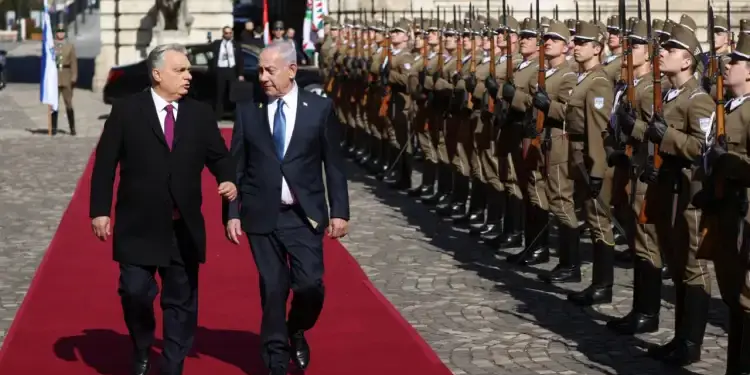On April 3, 2025, Benjamin Netanyahu was welcomed with military honors in Budapest by Hungarian Prime Minister Viktor Orban, despite an arrest warrant issued by the International Criminal Court (ICC) for war crimes in Gaza.
This trip also marks a major diplomatic turning point: Hungary has announced its intention to withdraw from the ICC, a gesture that made the international community react.
Viktor Orban described the ICC as “biased court” and criticized the institution for its lack of impartiality, notably referring to its mandate against the Russian president Vladimir Putin. For him, the ICC has become too political. Netanyahu praised this decision, calling it “courageous”, claiming that it was crucial to resist what he considers a “corrupt” organization that targets Israel unjustly.
This Hungarian position marks a direct challenge to the authority of the ICC and raises questions about the future of international justice. The European Union has reacted negatively, notably Germany, describing this “dark day for international criminal law”. While Hungary officially begins its withdrawal procedure, this gesture raises diplomatic tensions, especially since the ICC remains a central institution in the fight against impunity for the most serious crimes.
In parallel, the Palestinian authority urged Hungary to deliver Netanyahu to justice, stressing the contradiction between its support for Israel and its commitments in terms of human rights. The debate on national sovereignty in the face of international justice seems more relevant than ever.








